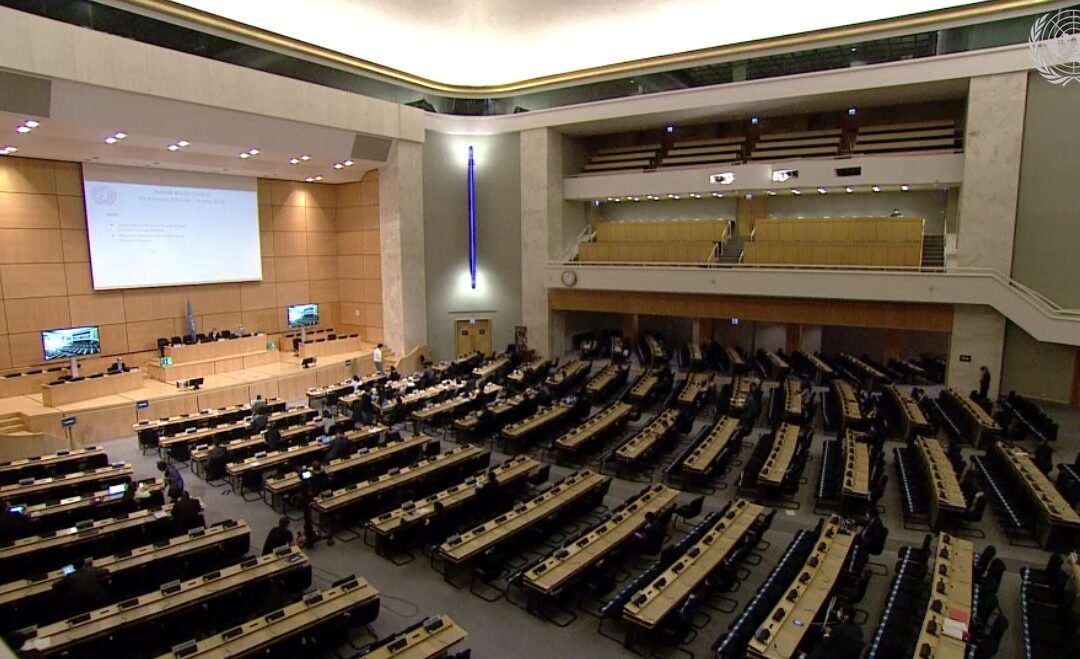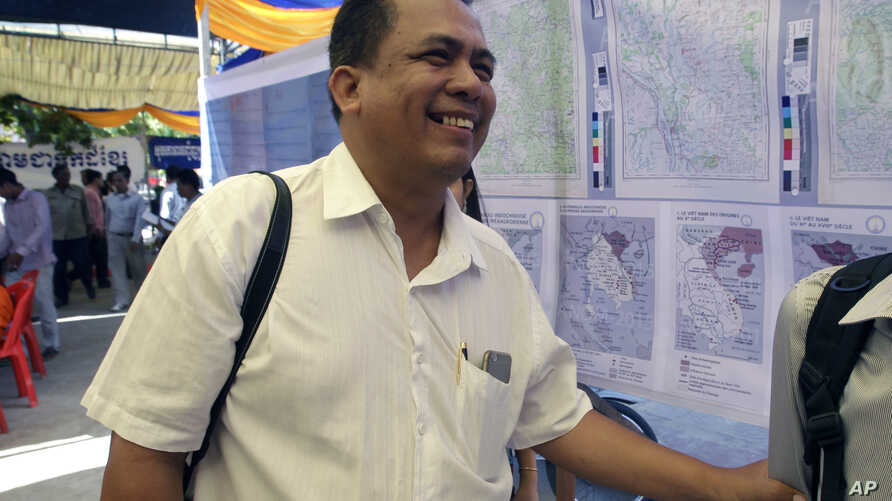
Jul 9, 2021 | News
Today, in advance of the fifth anniversary of the unlawful killing of prominent political commentator and human rights defender Kem Ley, the 45 undersigned organizations reiterate their call for the Cambodian authorities to create an independent Commission of Inquiry tasked with conducting an independent, impartial and effective investigation into Kem Ley’s death.
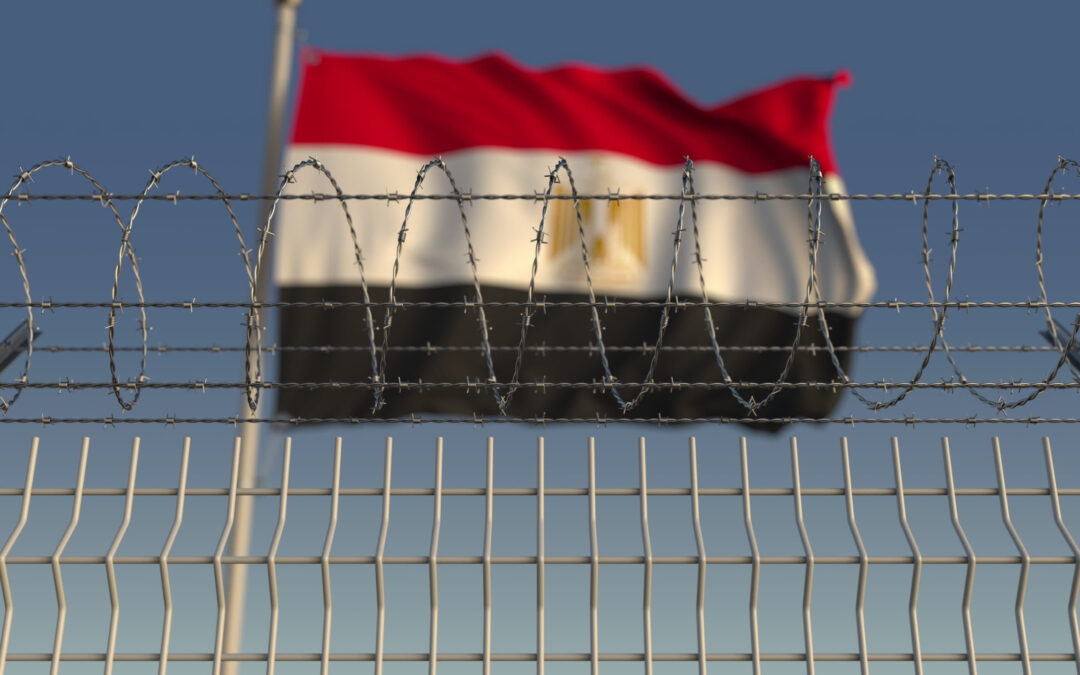
Jun 23, 2021 | Human Rights Council, News, Work with the UN
The Egyptian authorities systematically abuse “counter-terrorism” laws against human rights defenders, setting a dangerous model for other countries around the world to follow.
On 23 June, the International Commission of Jurists (ICJ) and the Cairo Institute for Human Rights Studies (CIHRS) jointly organized an online event on the sidelines of 47th session of the United Nations Human Rights Council to denounce Egypt’s targeting of human rights defenders through the country’s “counter-terrorism” laws.
Titled ‘Weaponizing Counter Terrorism Laws to Silence Human Rights Defenders’, the interactive online webinar aimed to highlight how the Egyptian authorities use “counter-terrorism” laws to target human rights defenders, including by placing lawyers and human rights activists on Egypt’s “terrorist list”, a recent practice resulting in serious human rights violations.
The event was moderated by Bahey Eldin Hassan, CIHRS Director, who stressed that the abuse of the “counter-terrorism” laws was not only employed against human rights defenders, and is not a phenomenon limited to Egypt.
The United Nations Special Rapporteur on Human Rights and Counter-Terrorism, Fionnuala Ní Aoláin, pointed out that repressive regimes take advantage of the lack of a globally agreed definition of terrorism when legislating for counter terrorism purposes. As a result, they get to place whomever they like under the “terrorism label” at the national level, with no meaningful oversight or penalties.
“The United Nations Security Council has taken on a massive legislative role on counter terrorism, which has given cover to and enabled State repression at the national level,” Ní Aoláin noted addressing the role of the international community.
“This is not an accident or a ‘bad apple’ problem, the misuse of counter-terrorism is embedded in the practised national legal systems,” Ní Aoláin added. “That abuse is part of the DNA of State practice in many countries.”
“We are at a pivotal moment. States must ask themselves what 20 years of abuse of counter terrorism laws have done,” Ní Aoláin urged. “It has weakened protections and made us less safe in many ways. This is a time for States to stand up and ensure pressure for change of this situation.”
Brian Dooley, Senior Advisor to the UN Special Rapporteur on Human Rights Defenders, noted that for authorities to imprison a human rights defender “with a straight face” for a long period of time, they have to use major accusations such as terrorism.
“The Egyptian authorities know that these human rights defenders are not terrorists,” Dooley said. “In most of the cases we have seen, where defenders were sentenced to ten years or more in prison, the relevant authorities use some sort of anti-terrorism, national security, or treason laws to justify putting a human rights defender away in prison for 10 or more years.”
Said Benarbia, ICJ Middle East and North Africa Director, began by naming some of the most prominent human rights defenders who remain in pre-trial detention facing “terrorism-related charges” in Egypt.
Among those Benarbia mentioned are: Alaa Abdelfattah, a blogger and a human rights activist; Mahienour al-Masri, a human rights lawyer; Mohammad al-Baqer, a lawyer and the director of the independent NGO, Adalah; and Amr Imam, a lawyer at the Arabic Network for Human Rights Information.
“In most of the cases the ICJ documented human rights defenders face charges of ‘joining a terrorist group’,” but the State security prosecution has consistently failed to even name the terrorist organization or group concerned,” Benarbia said. “In most of the cases, prosecutions were initiated with the sole purpose of intimidating and silencing human rights defenders.”
Benarbia emphasized that prosecuting individuals despite a total lack of evidence to support the charges is contrary to both the Egyptian and international law and standards.
“Any country that, like Egypt, uses ‘counter terrorism’ legislation to clamp down on basic freedoms and retaliate against human rights defenders and create open-air prisons should not have a say in setting international standards on terrorism,” Benarbia added.
Human Rights Defender, Celine Lebrun Shaath, delivered a passionate statement about her husband, Ramy Shaath, an Egyptian Palestinian human rights defender who has been detained since July 2019. Shaath, who herself was deported from Egypt in the wake of her husband’s arrest, mentioned that the online event was taking place on Ramy Shaath’s birthday; the second since his imprisonment. “I would rather not be here today,” she added, lamenting what had happened to her husband.
“We do not know to what terrorist group Ramy is supposed to be belonging,” Shaath said. “He is accused of spreading ‘fake news’, but we don’t know which news or where he had spread them.”
Shaath expressed her hope that the Egyptian government would heed the call for her husband’s release and free Ramy and all the political prisoners.
“[Human Rights Defenders] should be looked at as a wealth for this country. They are the future, they are not a threat, dissent is not terrorism, dissent is a vibrant part of democracy that should be cherished and protected,” Shaath underscored.
On 12 March 2021, 31 UN Member States signed a joint declaration condemning the human rights situation in Egypt, which Finland delivered on their behalf at the Human Rights Council’s 46th session. The joint letter focused primarily on “the restrictions on freedom of expression and the right to peaceful assembly, the constrained space for civil society and political opposition, and the application of terrorism legislation against peaceful critics.”
The event was cosponsored by Human Rights Watch, Amnesty International, the International Service for Human Rights and the International Federation for Human Rights.
You can watch the entire event here.
Contact:
Said Benarbia, Director, ICJ Middle East and North Africa Programme, t: +41-22-979-3817; e: said.benarbia(a)icj.org
Asser Khattab, Research and Communications Officer, ICJ Middle East and North Africa Programme, e: asser.khattab(a)icj.org
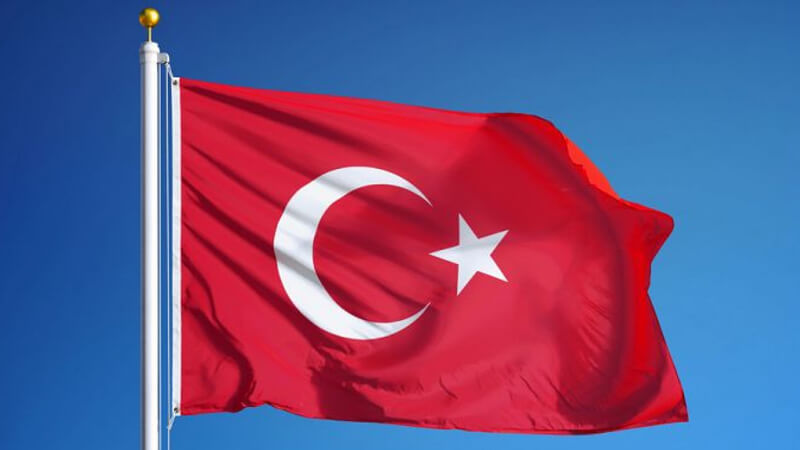
Jun 4, 2021 | News
(Istanbul, June 4, 2021) – The Council of Europe should insist that Turkey comply immediately with judgments from the European Court of Human Rights (ECtHR), or face infringement proceedings, a group of leading nongovernmental organizations working on human rights in Turkey said today.
An upcoming Council of Europe Committee of Ministers meeting on June 7-9, 2021, will review the Turkish government’s failure to implement two leading ECtHR judgments that ordered the immediate release of the human rights defender Osman Kavala and the Kurdish politician Selahattin Demirtaş. Human Rights Watch, the International Commission of Jurists, and the Turkey Human Rights Litigation Support Project urged the committee to use all available measures to require Turkey to rectify its flagrant non-compliance with its obligations, the court judgments, and the committee’s decisions on this matter.
“The Committee of Ministers should be using every means it has to push Turkey to implement the Kavala and Demirtaş judgments,” said Aisling Reidy, senior legal adviser at Human Rights Watch. “That means that the committee should be prepared to trigger infringement proceedings against Turkey if it persists with its defiance of the European Court’s binding judgment in favor of Kavala, and to call for the immediate release of Demirtaş with a commitment to escalate measures if it does not happen.”
The three groups repeated their March 2021 call for the committee to commence infringement proceedings against Turkey for flouting its decisions requesting Kavala’s release and urged the committee to issue a second decision for Demirtaş’s immediate release. The committee should also make clear that if Demirtaş is not released, it will take further action at its September session.
The ECtHR ruled on December 10, 2019, that by holding Kavala in pretrial detention since November 2017 and prosecuting him on the basis of his human rights activities, the Turkish authorities had “pursued an ulterior purpose, namely to silence him as a human rights defender.”
Similarly, the ECtHR ruled on December 22, 2020, that by holding Demirtaş in pretrial detention since November 2016 and prosecuting him for his activities and speeches protected under the European Convention on Human Rights (ECHR), the Turkish authorities had pursued an ulterior purpose of preventing him from carrying out his political activities, depriving voters of their elected representative, and “stifling pluralism and limiting freedom of political debate: the very core of the concept of a democratic society.”
In both cases, the Court found that by using detention for political ends, Turkey had violated the right to liberty and other rights, and had misused the discretion given to governments to impose limitations on rights for illegitimate purposes (articles 5 and 18 of the ECHR respectively). The Court took the rare step of ordering their immediate release.
Despite the fact that the landmark judgments are legally binding, the Turkish authorities have snubbed the Strasbourg court and ignored the Committee of Ministers’ decisions calling for the men’s release.
“Turkish prosecutors and judges have sought to circumvent the authority of the European Court by adopting the tactic of opening new criminal proceedings against Kavala and Demirtaş based on the reclassification of the same facts,” said Helen Duffy of the Turkey Human Rights Litigation Support Project “This cynical non-compliance with the court’s judgments requires a robust response from the Committee of Ministers.”
On May 21 when the retrial of Kavala for his alleged role in the 2013 Gezi Park protests opened, Turkish authorities merged that case with another concerning his alleged involvement in the 2016 coup attempt and espionage. The Istanbul 30th Assize Court hearing the case extended his detention. The next hearing against Kavala is scheduled for August 6.
In Demirtaş’s case, Ankara 22nd Assize Court on April 19 merged an existing case against him with a new case before it despite the fact that it involved the same or similar facts, which the European Court had held consisted of peaceful political speeches and activities protected under the ECHR. In the new case, the facts used as the evidence have been reclassified under different charges.
The indictment now charges Demirtaş and 107 co-defendants with crimes that include attempting to undermine the unity and territorial integrity of the state, murder, and robbery, all on the basis of tweets and political speeches they made in the period before deadly protests that took place in southeast Turkey from October 6-8, 2014. Demirtaş’s co-defendants include current and former members of parliament from the Peoples’ Democratic Party (HDP). The first hearing of the merged cases against Demirtaş took place on April 26. The next hearing is scheduled for June 14.
Read the full press release here: Turkey Flouts European Court Judgments_press release_2021_ENG
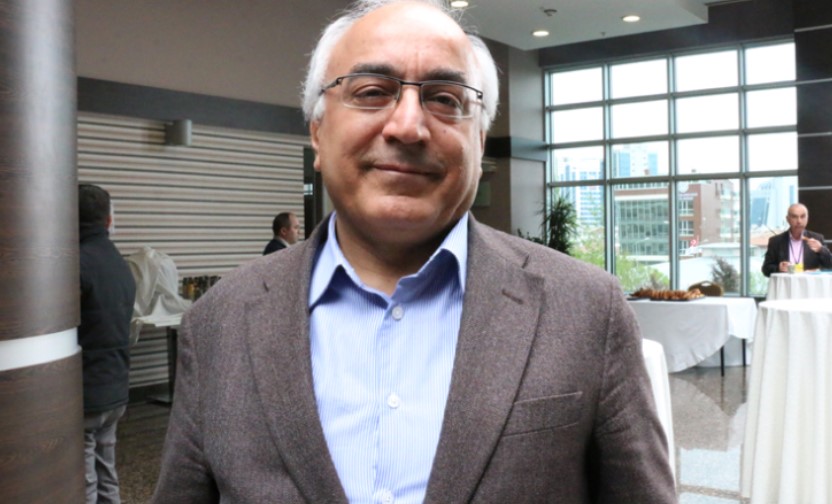
Mar 19, 2021 | News
The ICJ called today on the Turkish authorities to immediately release human rights defender and lawyer Öztürk Türkdoğan, who was arrested this morning after an unlawful search of his home. The charges against him, if any, are unkown and he is currently being held without access to his lawyer.
Öztürk Türkdoğan is the chair of the Human Rights Association and a lawyer and member of the Ankara Bar Association.
“The arrest and search of Öztürk Türkdoğan’s continues a systematic pattern of misuse of the criminal law to harass and persecute human rights defenders and lawyers in Turkey in recent years,” said Roisin Pillay, ICJ’s Europe and Central Asia Programme Director. “Öztürk Türkdoğan must be released immediately. If he remains in detention then he must be ensured immediate and confidential access to a lawyer, and be informed of the nature of any charges against him and brought promptly before a court.”
The arrest occurred during a search of Öztürk Türkdoğan’s home without the presence of a lawyer, which is in direct contravention of Turkish criminal procedural law.
While no information has been made available on the charges against Öztürk Türkdoğan, he is currently being detained without access to a lawyer for 24 hours, which indicates that the charges are likely related to terrorism or to offences against the State. These offences, contrary to obligations under international human rights law, are vaguely and broadly defined and have been long used and abused by prosecutors in Turkey to suppress human rights defenders, lawyers and political opponents.
Under international human rights law, anyone arrested has a right to prompt and confidential access to a lawyer, and to information on the charges against them. Arrests and searches of homes must not be arbitrary and must be carried out in compliance with international standards and national laws and procedures.
“Hundreds of lawyers, judges and prosecutors have been improperly arrested, harassed and detained in the past few years by Turkish authorities ” said Roisin Pillay. “Using the criminal justice system in this way is contrary to the most fundamental principles of the rule of law.”
Background
Systematic violations of human rights in investigation and prosecution of counter-terrorism offences in Turkey have also been documented by the UN Special Rapporteur on the promotion and protection of human rights while countering terrorism, the UN Special Rapporteur on the situation of human rights defenders, the UN Special Rapporteur on the independence of judges and lawyers, theWorking Group on Arbitrary Detention, the Special Rapporteur on the rights to freedom of peaceful assembly and of association and the Special Rapporteur on the promotion and protection of the right to freedom of opinion and expression, and the Commissioner for Human Rights of the Council of Europe.
The ICJ has extensively documented these violations:
